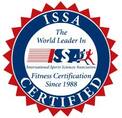Protein
Adequate protein intake will help build muscle and/or prevent muscle loss if you are in a calorie deficit. It controls appetite and staves off hunger better than fats or carbs as it causes you to feel full longer.
It also requires more energy than other macros for your body to digest, thus effectively burning more calories gram for gram through the digestion process. All of these reasons make high-protein diets great for fat loss. There are 4 calories per gram of protein.
Good sources of protein include meat, fish, eggs, dairy and protein shakes.
Fat
Fat is an essential nutrient that our bodies require to live; it assists in vitamin absorption, hormone regulation, brain function, and more.
There are 9 calories per gram of fat.
Good sources of fat include meat, fatty fish, nuts, nut butters, oils and countless other sources.
Carbohydrate
Carbs are stored in the liver, brain, blood and muscles as glycogen. Our bodies use carbohydrates for energy. Just like protein, there are 4 calories per gram of carbohydrate.
Sources of carbs include fruit, vegetables, grains, and many processed foods/drinks.
Alcohol
Alcohol is not an essential nutrient, but it does contain calories which is why it stands in as a fourth macro. There are 7 calories per gram of alcohol. Alcohol calories can be counted against your daily fat or carb macros. Most people choose to count them against whichever they have most of at the end of their day. Though alcohol can be consumed during fat loss it is not recommended to have more than 2 drinks a day as there are many other side effects to daily alcohol consumption that can quickly derail progress.
To lose weight you must consume fewer calories than you burn, and to gain weight you need to consume more than you burn. By having your macros calculated you will have much greater success reaching your fat loss or muscle building goals. Eating the right amount of protein, carbohydrates and fat ensures you are getting the proper nutrients needed to fuel your body, lift heavy, feel great AND lose fat.
Adequate protein intake will help build muscle and/or prevent muscle loss if you are in a calorie deficit. It controls appetite and staves off hunger better than fats or carbs as it causes you to feel full longer.
It also requires more energy than other macros for your body to digest, thus effectively burning more calories gram for gram through the digestion process. All of these reasons make high-protein diets great for fat loss. There are 4 calories per gram of protein.
Good sources of protein include meat, fish, eggs, dairy and protein shakes.
Fat
Fat is an essential nutrient that our bodies require to live; it assists in vitamin absorption, hormone regulation, brain function, and more.
There are 9 calories per gram of fat.
Good sources of fat include meat, fatty fish, nuts, nut butters, oils and countless other sources.
Carbohydrate
Carbs are stored in the liver, brain, blood and muscles as glycogen. Our bodies use carbohydrates for energy. Just like protein, there are 4 calories per gram of carbohydrate.
Sources of carbs include fruit, vegetables, grains, and many processed foods/drinks.
Alcohol
Alcohol is not an essential nutrient, but it does contain calories which is why it stands in as a fourth macro. There are 7 calories per gram of alcohol. Alcohol calories can be counted against your daily fat or carb macros. Most people choose to count them against whichever they have most of at the end of their day. Though alcohol can be consumed during fat loss it is not recommended to have more than 2 drinks a day as there are many other side effects to daily alcohol consumption that can quickly derail progress.
To lose weight you must consume fewer calories than you burn, and to gain weight you need to consume more than you burn. By having your macros calculated you will have much greater success reaching your fat loss or muscle building goals. Eating the right amount of protein, carbohydrates and fat ensures you are getting the proper nutrients needed to fuel your body, lift heavy, feel great AND lose fat.



